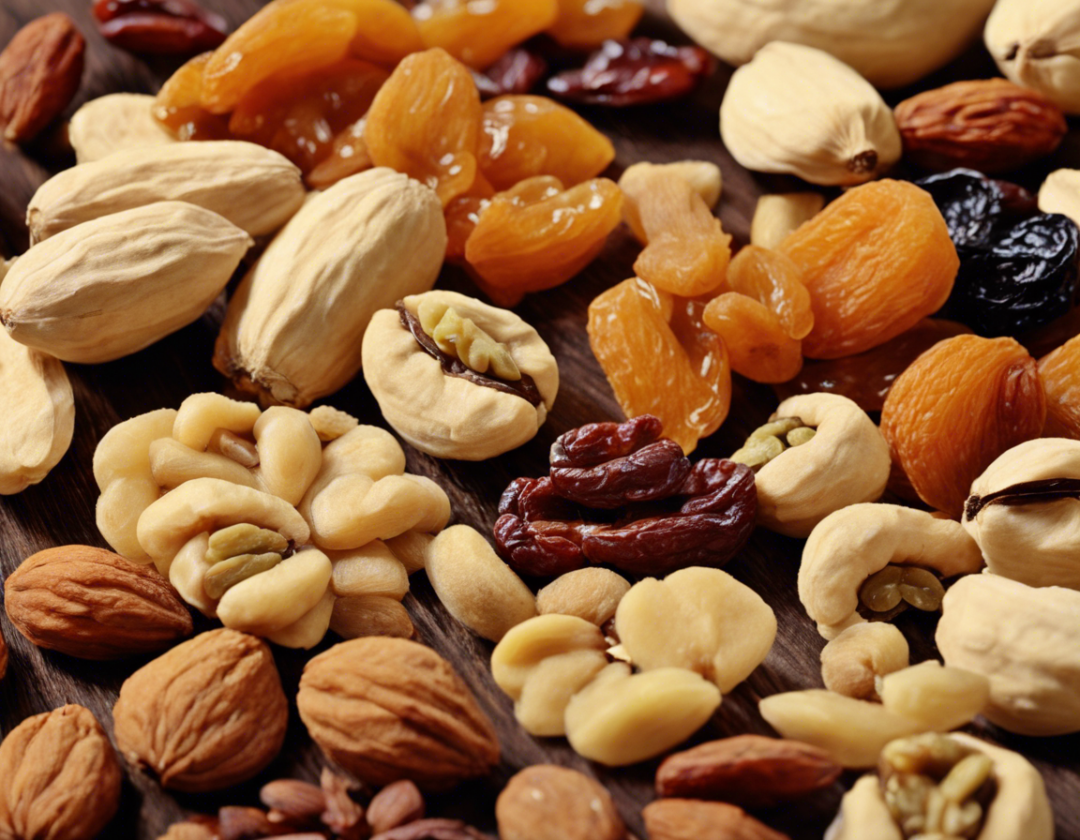Snack Healthier with Nutritious Dry Fruits

Introduction
In the quest for healthy eating, dry fruits stand out as a smart snack option packed with essential nutrients. Often overlooked in favor of fresh produce, these dried versions of fruits provide a concentrated source of vitamins, minerals, and fiber. Incorporating dry fruits into your daily diet can offer a variety of health benefits, including improved digestion, enhanced energy levels, and a strengthened immune system. Let’s delve deeper into the world of dry fruits and explore how you can snack healthier with these nutrient-dense powerhouses.
The Nutritional Value of Dry Fruits
Dry fruits are essentially fresh fruits that have had the water content removed through drying methods, such as sun-drying or dehydrating. This process results in a smaller, more concentrated form of the original fruit, packing a powerful nutritional punch. Some popular dry fruits include raisins, apricots, figs, dates, prunes, and cranberries.
Benefits of Including Dry Fruits in Your Diet
-
Rich in Essential Nutrients: Dry fruits are a abundant source of essential nutrients such as vitamins, minerals, and fiber. They are particularly high in vitamin C, vitamin E, potassium, magnesium, and iron.
-
Boost Immune System: The vitamins and minerals found in dry fruits play a key role in supporting a healthy immune system, helping to fend off illness and infections.
-
Improved Digestion: The fiber content in dry fruits can aid digestion and promote regular bowel movements, preventing constipation and supporting gut health.
-
Natural Energy Boost: Thanks to their natural sugars and carbohydrates, dry fruits provide a quick and convenient source of energy to fuel your body throughout the day.
-
Antioxidant Properties: Many dry fruits are rich in antioxidants, which help protect cells from damage caused by free radicals and contribute to overall health and well-being.
Choosing the Healthiest Dry Fruits
When selecting dry fruits, it’s important to opt for varieties that are free from added sugars, preservatives, and additives. Ideally, choose organic or naturally dried fruits that retain their nutritional integrity. Be mindful of portion sizes as well, as dry fruits can be calorie-dense due to their concentrated nature.
Incorporating Dry Fruits into Your Diet
There are numerous ways to include dry fruits in your daily diet:
-
Snack on a Handful: Enjoy a small handful of dry fruits as a quick and nutritious snack between meals.
-
Add to Cereals and Yogurt: Sprinkle chopped dry fruits on your morning cereal or mix them into yogurt for added flavor and texture.
-
Blend Into Smoothies: Blend dry fruits into your favorite smoothie recipes for a nutrient boost.
-
Bake Into Goods: Include dry fruits in baking recipes such as cookies, muffins, and bread for a naturally sweet touch.
-
Mix into Salads: Toss dry fruits into salads for a burst of sweetness and crunch.
FAQs (Frequently Asked Questions)
-
Are all dry fruits equally nutritious?
Not all dry fruits are created equal in terms of nutritional content. Some varieties, such as apricots, figs, and prunes, are particularly rich in essential nutrients compared to others. -
Can dry fruits help with weight management?
While dry fruits are nutrient-dense and offer health benefits, they are also calorie-dense. It’s important to consume them in moderation as part of a balanced diet to support weight management goals. -
Are dry fruits a good source of fiber?
Yes, dry fruits are an excellent source of dietary fiber, which can help promote digestion, regulate blood sugar levels, and support overall gut health. -
Should I be concerned about the sugar content in dry fruits?
Dry fruits contain natural sugars from the fruits themselves, which provide energy and sweetness. While it’s important to be mindful of portion sizes, the natural sugars in dry fruits are not the same as added sugars in processed foods. -
Can dry fruits be enjoyed by individuals with diabetes?
Individuals with diabetes can include dry fruits in their diet, but portion control is key due to their natural sugar content. Consulting with a healthcare provider or dietitian is recommended to determine the best choices and serving sizes. -
Are salted or candied dry fruits healthy?
Salted or candied dry fruits often contain added sugars, salt, or other preservatives that can detract from their nutritional value. Opt for unsweetened or naturally dried varieties for the healthiest options. -
How should dry fruits be stored to maintain freshness?
To maintain the freshness of dry fruits, store them in an airtight container in a cool, dry place away from sunlight. Refrigeration can help extend their shelf life. -
Can children consume dry fruits?
Dry fruits can be a healthy snack option for children, providing essential nutrients in a convenient and portable form. For young children, it’s important to ensure that the dry fruits are cut into small, age-appropriate pieces to prevent choking hazards. -
Are there any allergies associated with consuming dry fruits?
Some individuals may have allergies to specific dry fruits, such as nuts or sulfites commonly found in dried apricots. It’s important to be aware of any food allergies or sensitivities before incorporating dry fruits into your diet. -
Can dry fruits be included in a vegan or vegetarian diet?
Dry fruits are a great plant-based source of essential nutrients and can easily be incorporated into vegan and vegetarian diets as a wholesome snack or ingredient in recipes.








